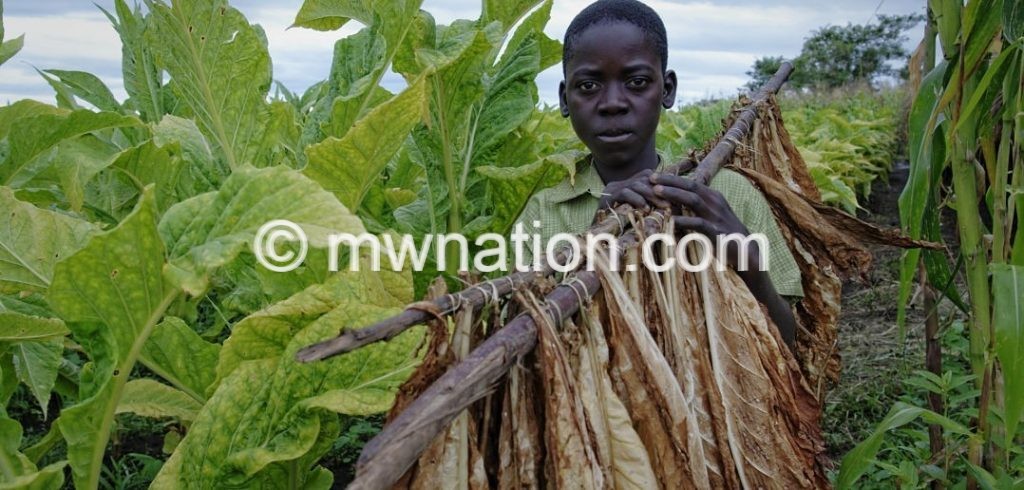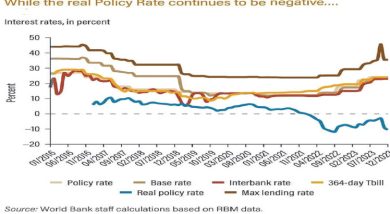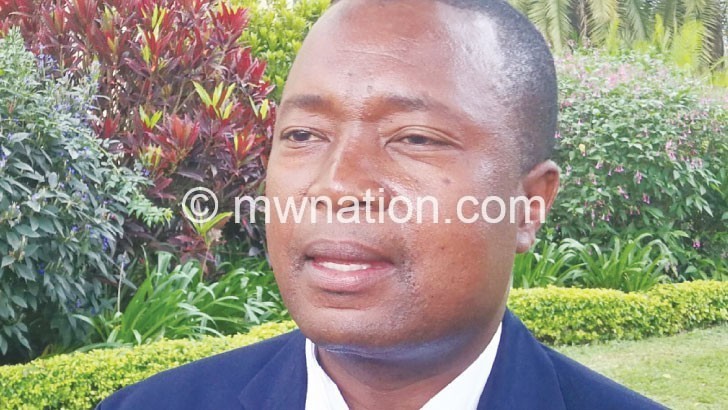Mixed fortunes for tobacco
Tobacco, touted as Malawi’s major foreign exchange earner, registered mixed fortunes in terms of performance in 2019.
Earnings were low compared to last year and controversy on the new Tobacco Industry Act also featured highly.
The tobacco marketing season officially opened on April 25 2019 and closed on September 27, with an 18 percent decrease in volume sold.
During the opening of the marketing season, President Peter Mutharika announced the removal of three percent withholding tax on small-scale farmers who produce less than 10 bales of tobacco.

He said the decision was arrived at because tobacco is a strategic crop for Malawi and that his administration was committed to enhancing the crop by giving smallholder farmers incentives that would boost their trade.
“These are the farmers who sell their tobacco in clubs, but I want each smallholder farmer to benefit.
“I want to see our farmers getting home with more. I also want to see farmers getting good prices for their produce,” said Mutharika.
The President said his government is committed to promoting the tobacco industry by reforming it, citing the targeted removal of withholding tax as one of such reforms.
However, complication erupted when Malawi Revenue Authority (MRA) continued deducting the tax from farmers.
The issue was, however, corrected and government directed that farmers be compensated.
Cumulatively, tobacco fetched an all-type average price of $1.43 (about K1 058) per kilogramme (kg) in 2019, which was 14.3 percent lower than $1.67 (about K1 235) per kg fetched in 2018.
The leaf raked in $237 million (about K175 billion), a drop of 29.8 percent from $337.5 million realised in 2018.
In the implementation of the Tobacco Industry Act, the Tobacco Commission (TC) imposed a penalty on tobacco growers for overproducing the leaf.
The tobacco industry regulator announced that growers who overproduced tobacco beyond their allocated quota will have 75 percent of their revenue collected by the TC while they remain with 25 percent revenue.
This is one of the provisions in the new Act, to control overproduction of tobacco.
However, farmers protested the punishment and government eventually intervened to reverse the punishment.
In announcing the reversal, TC’s Sadala said: “In terms of penalties, government has instructed as follows; if a grower produced tobacco above their quota by and up to 25 percent, the commission will uplift their quota if they apply for it. In this case, the commission will collect 25 percent of the proceeds and remit the remaining 75 percent to the tobacco grower.
“If a grower produces tobacco above their quota by more than 25 percent, the commission will uplift the quota if they apply for it. The commission will collect 75 percent of the proceeds at the sale and remit the remaining 25 percent to the tobacco grower.”
Towards the end of the season, the tobacco industry was shocked with the news that the United States Government issued a World Release Order due to concerns of reports of forced and child labour in the production value chain.
The WRO is an order on goods, including tobacco which requires the exporter of tobacco into USA to provide evidence that the leaf was produced in line with best practices.
Minister of Agriculture, Irrigation and Water Development Kondwani Nankhumwa told tobacco industry players not to worry about the WRO as government was discussing with the US Government representatives to resolve the issues of concern.
In relation to the WRO, TC deputy chief executive officer Levi Pheleni expressed fear that countries such as Mozambique and Zambia are posing threats to Malawi’s tobacco market as they are adhering to international standards.
He, however, remained confident that Malawi will sustain its markets, saying the new Tobacco Industry Act has given the regulator the power to deal with issues such as child labour and enforcement of strict adherence to best tobacco production practices.
Said Pheleni: “There are a lot of audits that happen in the tobacco industry. These are done by the same buying companies that we supply to, and they certify. It is not like we operate in secret.
“They actually come to audit everything that happens in the tobacco production value chain.”
Tobacco remains the country’s main foreign exchange earner, bringing about 60 percent of foreign currency earnings.
Tobacco demand has continued to decline in recent years owing to World Health Organisation’s Framework Convention on Tobacco Control, which bring in strict tobacco production and marketing regulations.





